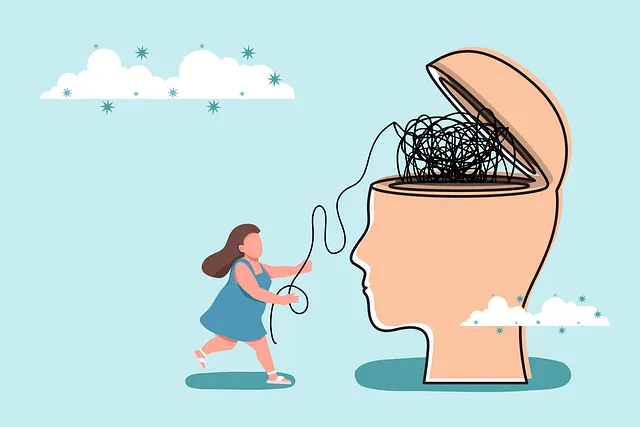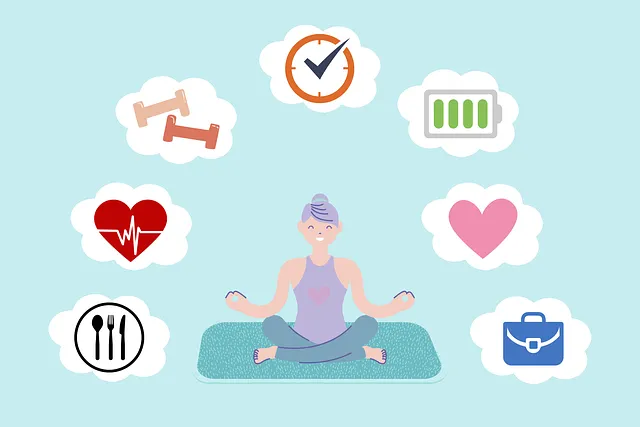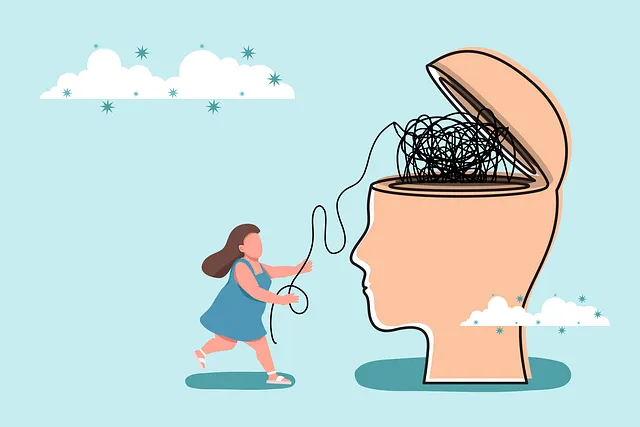Denver Kaiser Permanente's group facilitation programs create a supportive environment for emotional well-being through skilled facilitators guiding discussions, activities, and exercises that enhance self-awareness, emotional regulation, and coping strategies. This community-focused approach complements traditional therapy, equips individuals with practical tools, and increases mental health awareness and resilience. Access their mental health appointment phone number for more information on these supportive services, which prioritize emotional intelligence, mood management, and coping skills development.
Mental wellness group facilitation offers a powerful approach to supporting individuals through shared experiences. This article explores effective techniques and best practices for facilitators, drawing insights from Denver Kaiser Permanente’s comprehensive mental health services, accessible via their dedicated phone line. We’ll guide you through understanding group dynamics, creating safe spaces, and measuring the positive impact of your sessions. Discover proven methods to facilitate meaningful discussions and foster a supportive environment, enhancing participants’ mental wellness.
- Understanding Group Facilitation for Mental Wellness
- Denver Kaiser Permanente: A Resource for Mental Health Support
- Effective Techniques to Guide Group Discussions
- Creating a Safe and Inclusive Environment in Your Sessions
- Measuring Success: Evaluating the Impact of Group Facilitation
Understanding Group Facilitation for Mental Wellness

Group facilitation plays a pivotal role in enhancing mental wellness, offering a unique and supportive environment for individuals to navigate their emotional journeys. When incorporated into healthcare settings, such as Denver Kaiser Permanente mental health appointments, this approach can significantly impact positive outcomes. The process involves creating a safe space where participants engage in discussions, activities, and exercises designed to foster emotional regulation and promote overall well-being.
Skilled facilitators guide the group through techniques that encourage open communication, build camaraderie, and enhance self-awareness. By fostering a sense of community, these sessions enable individuals to share experiences, learn from one another, and develop effective coping strategies. This collective experience not only complements traditional mental health appointments but also empowers participants with practical tools for emotional well-being promotion techniques, contributing to improved mental health awareness and resilience.
Denver Kaiser Permanente: A Resource for Mental Health Support

Denver Kaiser Permanente stands as a beacon of hope for those seeking mental health support. This healthcare provider offers a comprehensive range of services designed to cater to diverse needs, with a particular focus on emotional well-being. Their dedicated team comprises licensed therapists and counselors who utilize evidence-based practices to facilitate healing and growth. Beyond traditional therapy sessions, Denver Kaiser Permanente encourages community engagement through various group facilitation techniques. These include programs aimed at enhancing emotional intelligence, teaching effective mood management strategies, and fostering the development of coping skills.
For individuals looking to navigate their mental health journey, Denver Kaiser Permanente provides a safe and supportive environment. Accessing these services is straightforward; potential clients can start by reaching out through the mental health appointment phone number, which is typically listed on their official website. This initial step marks the beginning of a transformative path where individuals gain tools to manage stress, overcome challenges, and cultivate resilience.
Effective Techniques to Guide Group Discussions

Guiding group discussions effectively is a key skill for mental wellness facilitators. One powerful technique involves using open-ended questions to encourage active participation and foster a sense of community within the group. By asking questions that require more than a simple ‘yes’ or ‘no’ answer, facilitators can delve deeper into members’ experiences and perspectives, creating a safe space for honest exploration. For instance, instead of asking “Do you struggle with anxiety?” a facilitator might inquire, “What triggers your anxiety and how do you currently cope with these feelings?”
Additionally, incorporating structured communication strategies like the ’round-robin’ method ensures every group member has an opportunity to share. This technique involves going around the circle, allowing each person to contribute their thoughts or experiences. It promotes equal participation and helps build trust among group members. Moreover, integrating risk management planning into these discussions is vital for mental health professionals. By recognizing potential triggers and having support services readily available, such as Trauma Support Services, facilitators can navigate sensitive topics effectively while prioritizing the well-being of all participants.
Creating a Safe and Inclusive Environment in Your Sessions

Creating a safe and inclusive environment is paramount when facilitating mental wellness groups. It begins with establishing clear boundaries and ground rules from the outset. As a facilitator, it’s crucial to ensure every participant feels heard, respected, and valued, fostering an atmosphere where they can openly share their experiences without fear of judgment. Encouraging active participation through non-verbal cues, maintaining eye contact, and actively listening demonstrates your commitment to creating a welcoming space.
In Denver, Kaiser Permanente offers mental health appointment phone numbers for those seeking support, including Trauma Support Services, Mood Management, and Crisis Intervention Guidance. Emulating these principles in group sessions not only promotes open communication but also mirrors the comprehensive care available through such services. Ultimately, cultivating a safe haven within your sessions can significantly enhance participants’ willingness to engage and benefit from group facilitation techniques.
Measuring Success: Evaluating the Impact of Group Facilitation

Measuring success in mental wellness group facilitation goes beyond simply filling a room with participants. It’s about evaluating the tangible impact on individuals’ lives, much like understanding the effect of a Denver Kaiser Permanente mental health appointment phone number on someone’s well-being. Facilitators should aim to foster environments that promote open communication, build resilience, and enhance coping skills development. Regularly collecting feedback from group members can offer valuable insights into these outcomes.
Cultural sensitivity in mental healthcare practice is crucial for ensuring inclusivity and effectiveness. By tailoring facilitation techniques to address diverse backgrounds and experiences, facilitators can create spaces where individuals feel seen, heard, and supported. This approach not only boosts confidence but also strengthens the overall impact of group sessions, potentially leading to long-lasting positive changes in mental health outcomes.
Group facilitation techniques for mental wellness are powerful tools, as evidenced by successful programs like those offered by Denver Kaiser Permanente. By creating safe and inclusive environments, facilitators can foster meaningful discussions and enhance participants’ mental health. Effective guidance, such as utilizing open-ended questions and active listening, ensures engaging sessions. Measuring success through evaluation allows for continuous improvement, ensuring these groups remain impactful resources, accessible via the Denver Kaiser Permanente mental health appointment phone number.


